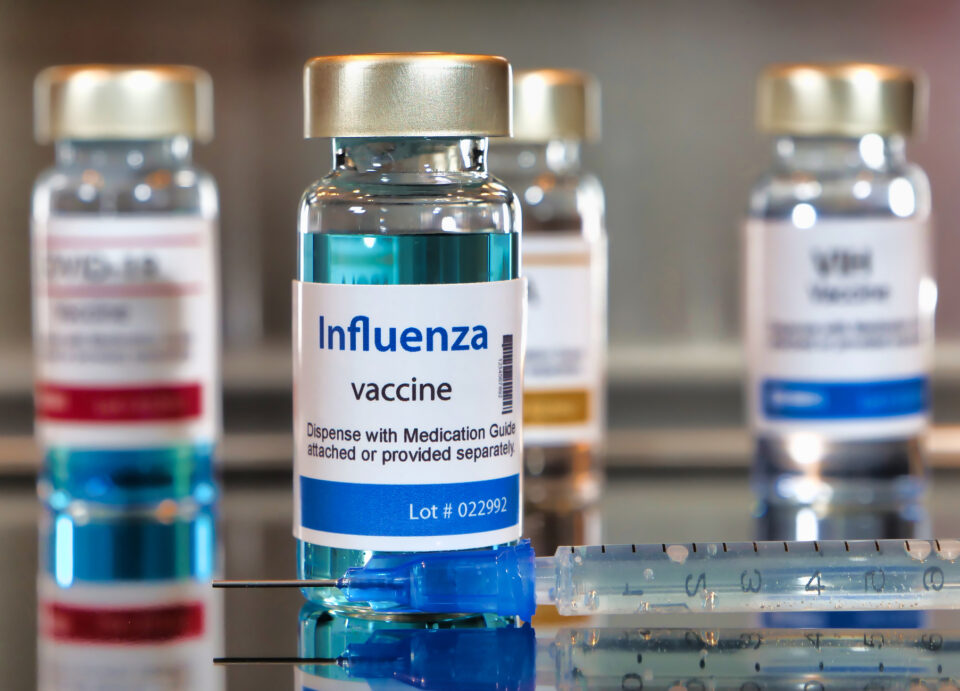Immunizations: What You Need To Know Now


Colder weather and holiday celebrations accompany cold and flu season and the need to discuss immunizations and staying healthy. This year, three vaccinations are in the spotlight: RSV, the COVID-19 updated vaccine, and the flu shot. While the most important conversation is between you and your healthcare provider so that they can provide personalized recommendations, it can be helpful to be armed with more information about what these immunizations are and how they work. There are a lot of questions surrounding seasonal vaccines so let’s break down the facts on what they are, what they protect against, when to get them, and how to best prepare for them.
 Understanding the Vaccines
Understanding the Vaccines
The three vaccines offered this year are RSV, COVID-19 updated vaccine and the flu shot. Respiratory Syncytial Virus (RSV) can cause serious lung infections in babies and older adults (the recommendations for protection are 65+ years). The RSV vaccine works by building an immune response that will help protect you from the respiratory disease in the future. This immunization has part of the RSV virus in it and there are two versions that are licensed by the U.S. Food and Drug Administration. The COVID-19 updated vaccine is an mRNA vaccine (it instructs your body’s cells to make proteins that can help trigger an immune response against the virus) and, in fall of 2023, is designed to protect against severe disease from the variant Omicron XBB1.5. The flu vaccine is updated yearly and protects against influenza. It works by training your immune system to recognize and attack the flu virus by developing antibodies as protection. It introduces a small amount of the virus so the body knows what to attack when the real flu virus comes around.
 Eligibility and Importance for Your Health
Eligibility and Importance for Your Health
According to the Centers for Disease Control and Prevention (CDC) and current public health guidelines, these are the vaccines are recommended for specific groups of people:
- RSV: currently this vaccine is recommended for older adults (65+) because they are more likely to develop severe RSV and need hospitalization. If you’re 60 or older, consult your healthcare provider to see if the RSV vaccine would be helpful for your health.
- COVID-19 updated vaccine: as of fall 2023, the Advisory Committee on Immunization Practices has recommended the updated vaccine for anyone 6 months or older. The new vaccine helps reduce disease severity both for personal and community protection and has been formulated this season to protect against the newer, most common variants.
- Flu shot: The CDC advises the flu shot for all people aged 6 months and older. It’s an important vaccine, especially for older adults, young children, pregnant women, and those with specific health conditions such as asthma, diabetes, or heart disease.
 Receiving Multiple Vaccines at Once
Receiving Multiple Vaccines at Once
Getting multiple vaccines at a single appointment, including the flu, COVID-19, and RSV shots, can be a convenient option. Recent research backed by the CDC shows that combining the three vaccines together is considered safe. Keep in mind that multiple vaccines at once may slightly raise the risk of side effects like arm pain, swelling, headache, and fatigue but these effects are generally short-lived and should go away within 1-2 days. There was an FDA-funded study that came out in fall 2023 showing that older adults (65 years and older) who got the COVID updated vaccine and a high-dose version of the flu vaccine may have experienced an increased risk of stroke. However, physicians and researchers are still trying to understand what the true risk is, and many other articles have also come out not showing the same results. It’s important to know that having influenza and/or COVID-19 also raise the risk of stroke and other serious health conditions.
Studies point to the fact that the benefits of timely protection generally outweigh side effect risks, especially for people at higher risk of getting one or more of these viruses. It’s very important to talk to your healthcare provider about your risk and how to weigh the pros and cons for your individual needs.
If you’re worried about side effects and feeling unwell, there are some strategies you can take. Considerations include scheduling your appointments in the afternoon before a weekend or a day off so you can rest and navigate any side effects that come up without the pressure to work or be active. You can also choose separate appointments, with no specific wait time between doses, if that’s more comfortable and you’ve decided with your medical team what’s best for you this year. Whether you choose simultaneous or separate vaccines, the CDC recommends you receive all recommended vaccines to safeguard against these potentially serious illnesses during the fall and winter.
 Preparing for Vaccination Day
Preparing for Vaccination Day
It’s important to consult with your healthcare provider about any questions or concerns you have around the vaccines, especially if you have specific health conditions. For babies and children, it’s critical to get guidance from your pediatrician. It’s important that you have a good relationship with a provider you trust who can help you discuss what these recommendations mean for you and your family.
As you prepare for getting your vaccines it’s important to stay hydrated, eat a balanced meal before you go, and get a good night’s rest before your appointment. Consider reducing discomfort by opting for your dominant arm for the shot and try gentle arm movements to ease any pain. That’s right – movement actually helps reduce pain faster! Finally, plan to take it easy for the rest of the day after getting your vaccines in case of any side effects or fatigue.
As we enter a new season and start to spend more time indoors, it also brings an opportunity to prioritize health. The RSV vaccine, COVID-19 updated vaccine, and flu shot are powerful tools to protect yourself and your community, too. Your healthcare provider is your best ally here, providing personalized advice to make informed decisions. Make this autumn and winter a season of protection and well-being!
Resources
- Getting Flu, COVID-19, and RSV Vaccines at the Same Time | CDC. www.cdc.gov. Published November 3, 2023. Accessed November 24, 2023. https://www.cdc.gov/respiratory-viruses/whats-new/getting-vaccines-at-same-time.html#:~:text=Actions%20for%20the%20Public
- Clinical Guidance for COVID-19 Vaccination | CDC. www.cdc.gov. Published May 25, 2022. https://www.cdc.gov/vaccines/covid-19/clinical-considerations/interim-considerations-us.html. Accessed November 8, 2023.
- Protect yourself from COVID-19, Flu, and RSV. www.cdc.gov. Published September 8, 2023. https://www.cdc.gov/respiratory-viruses/index.html. Accessed November 24, 2023.
- Who Needs a Flu Vaccine and When. Centers for Disease Control and Prevention. Published October 11, 2019. https://www.cdc.gov/flu/prevent/vaccinations.htm. Accessed November 8, 2023.
- Who Should and Who Should NOT get a Flu Vaccine. https://www.cdc.gov/flu/prevent/whoshouldvax.htm. Accessed November 24, 2023.
- Lu Y, Matuska K, Nadimpalli G, Ma Y,et al. Evaluation of Stroke Risk Following COVID-19 mRNA Bivalent Vaccines Among US Adults Aged≥ 65 Years. medRxiv. 2023:2023-10.
- Lee KR, Bae JH, Hwang IC, Kim KK, Suh HS, Ko KD. Effect of influenza vaccination on risk of stroke: a systematic review and meta-analysis. Neuroepidemiology. 2017;48(3-4):103-10.
- Shimabukuro TT. Update on COVID-19 and influenza vaccine safety. https://stacks.cdc.gov/view/cdc/134682/cdc_134682_DS1.pdf. 2023.